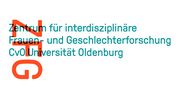Profile
Gender Studies (Dual-Subject Bachelor)
There are two ways in which you can receive a dual-subject bachelor’s degree in Gender Studies:
- as first or second subject (60 credit points) or
- as your minor (30 credit points) together with a main subject (90 credit points)
Gender Studies are not available as a degree programme if your intended career is in school education.
Focus and Goals
“Is it a girl or a boy?” This is one of the first questions asked when a child is born. What is the significance of the division of people into two sexes/genders? What are the implications for our sense of self and others, for identities and the living conditions of individuals? In what ways do constructions of gender shape the social and cultural order of things? What role do other organizing patterns such as age, ethnicity, sexuality, and class play? What mechanisms of power take effect?
Gender Studies are concerned with these questions. The degree programme in Oldenburg has a Cultural Studies focus. Consequently, it combines basic knowledge of Gender Studies with cultural theories. This involves methods and research approaches from diverse disciplines. Using gender concepts from different cultural, national, and global contexts, the goal is to examine mechanisms of privileging and marginalization. Equal opportunities and anti-discrimination policies are at the centre of attention just like structures, goals, and significance of social movements. International perspectives and a close collaboration with (non)-European scholars and experts are an integral part of the programme.
By acquiring analytical and inter-cultural competences, you will be qualified to work on cross-disciplinary issues of gender perspectives in cultural practices. The programme will introduce you to fields of practice and provide an opportunity to test your skills in an internship.
The Oldenburg Gender Studies programme is characterized by work in small groups with individual supervision and mentoring. Central perspectives are:
- the inter- and transdisciplinary look at “politics” of representation;
- transcultural processes and cultural transfer (migration of people and things);
- Queer Theory for an understanding of societal processes of normalization in the area of sexuality;
- gender specific processes of education;
- the linking of theory and fields of practice to acquire gender competence.
The programme of Gender Studies is coordinated by the Faculty III AG Gender Studies as well as the Centre for Interdisciplinary Women’s and Gender Studies (ZFG), Oldenburg University’s central resource and contact point for Gender Studies for lecturers, researchers, and students.
Foreign Language Competences
For foreign students, the admission to study programmes at Oldenburg University is only possible if proof of an adequate knowledge of German is provided with the application.
Please note further information about language requirements at Oldenburg University.
Occupational Fields and Areas of Activity
Today, intercultural and transdisciplinary competences that reflect on gender are relevant in the community, economy, academia, culture, and education. Depending on the subject combination, the course programme opens up avenues into diverse occupational fields:
- institutions of extra-curricular education
- cultural organization and the media
- universities and research institutes
- institutes of development cooperation
- human resources in economy and administration
- (inter)national equal opportunities organizations
After the bachelor’s degree, it is possibly to apply for the master’s degree programme “Kulturanalysen” (Cultural Analysis) at Oldenburg University, or for master’s programmes at other Universities in and outside of Europe.

